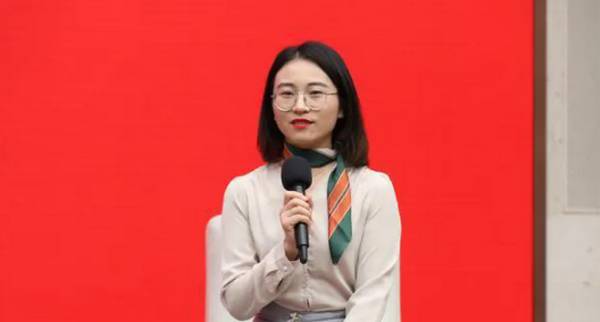- A+
所属分类:成人英语资源
一 时态
现在:现在进行时-一般现在时-现在完成时-现在完成进行时
过去:过去进行时-一般过去时-过去完成时-过去完成进行时-过去将来时
将来:将来进行时-一般将来时-将来完成时-将来完成进行时
二 词 性
oh!the bad queen and her two maids killed the good queen secretly at home on sunday.
感叹词-定冠词-形容词-名词-连词-人称代词-数词-复数名词-动词-定冠词-形容词-名词-副词-介词-名词-介词-名词
三? 成 分
my little brother(主语), tom(同位语), always(状语) has finished(谓语)? his homework(宾语)? before sunday状语 so that he could painted his rooms wall green(从句). he(主语) is(谓语) a pretty healthy(定语)?boy(宾语).
1. 主语
2. shanghai is in the east of china.
3. i bought a new book.
4. four is an unlucky number in china .
5. to see is to believe.
6. smoking is harmful to the health.
7. the old should be respected.
8. a man with a book is coming towards us.
9. what he said is not true.
10. it is difficult for him to give up smoking.
2. 谓语
he is a middle school student.
sally could swim well.
linda moves to the house quickly.
the new term will begin on the 1st of september.
his novel has been translated into english.
3. 宾语

1. he lost the red pen in his classroom.
2. everybodylikes her.
3. ---how many chairs do you want?
??? ---i want four.
4. the doctor is operating on the injured.
5. i haven’t finished reading your book yet.
6. i like coffee with some sugar.
7. i think you are right.
8. i really don’t know what i need to do next.
4. 定语
1. newton is a famous scientist.
2. let’s listen to the weather forecast first.
3. our school is going to build a swimming pool.
4. i have no pen to write with.
5. i haven’t got the solution to the problem.
6. the man who is coming toward us is my english teacher.
5. 同位语
this is my best friend, tom.
we all got a surprise.
this prize is for you two.
michael, the teacher of our reading, worked very hard.
i had no idea that you were here.
6. 状语
7. who can write beautifully?
8. we’re going to spend the holiday at the

seaside.
9. not knowing what to do, i decided to give up.
10. his mother often comes to see him.
11. please come this way.
12. as soon as the teacher came in, all the students stood up.
7 表语
his father is a teacher.
this book is mine.
the leaves turn yellow in autumn.
the teacher was satisfied with your work.
one plus one is two.
my job is looking after her.
what we want to do now is to lie down and rest.
sorry, my father isn’t in.
tom is in shanghai now.
the question is why we should put off the meeting.
8. 宾语补足语
某些及物动词+宾语,还需要有一个补足语,意思才完整
宾语+它的补足语? =? 复合宾语。
复合宾语的第一部分通常由名词或代词充当?
????????????????? 第二部分表示第一部分的名词或代词发出的动作
? ? ? ? ? ? ? ? ? ? ? ? ? ? ? ? ? ? ? ? ? ? ? ? ? ? ? ? ? ?或身份、特征等,
?????????????????????????????????????????????????????????? 称为宾语补足语。
im going to paint it pink.
哪些谓语动词后的宾语需要进一步补充?
1.

在表示心理状态的动词后作宾语补足语。
这类动词有:consider,think,believe,discover,find,imagine,judge,suppose,prove等。这类动词后的不定式通常是“to be+形容词或名词”结构,think,consider,find后的to be常可省略。
we consider him (to be) a good teacher.
2. 在表示情感状态的动词后作宾语补足语。
这类动词有:like,prefer,want,wish,expect等。
id prefer you to leave him alone.
3. 注意:hope,demand,suggest等动词后面不能接不定式作宾语补足语。
i hope you can give me a hand.
我希望你能帮我一把。
四 句子类型
简单句? 并列句? 复合句
简 单 句 基 本 句 型
基本句型 一:s v (主+谓)
1. the sun│rose.?????????????
2. who │cares?????????????????
3. what he said │does not matter.
4. they │talked for half an hour.
5. the pen │writes smoothly
基本句型 二: s v o (主+谓+宾)
1. who │knows │the answer?
2. he │has refused │to help them.
3. he │enjoys │reading.
4. he │said │
5. he │admits │that he was mistaken.
基本句型 三: s v o? o (主+谓+间宾+直宾)
1. she │ordered │herself │a new dress.
2. he │brought │you │a dictionary.
3. i │showed │him │my pictures.
4. i │told │him │that the bus was late.
5. he │showed │me │how to run the machine.
基本句型 四: s v o c (主+谓+宾+宾补)
1. they │painted │the door │green.
2. this │set │them │thinking.
3. they │found │the house │deserted.
4. he │asked │me │to come back soon.
5. i │saw │them │getting on the bus.
基本句型 五: s v p (主+系+表)
1. this│is │an english-chinese dictionary.
2. the dinner │smells │good.????????????
3. he │fell │in love.???????????????????
4. everything │looks │different.??????????
5. his face │turned │red.????????????????
?
系动词分两类:be, look, keep, seem等,表情况;get, grow, become, turn等属另一类,表变化。
be 本身没有什么意义,只起连系主语和表语的作用。其它系动词仍保持其部分词义。
感官动词多可用作连系动词:look well/面色好, sound nice/听起来不错,feel good/感觉好,smell bad/难闻
复 合 句
主语从句
宾语从句
表语从句
同位语从句
定语从句
状语从句
